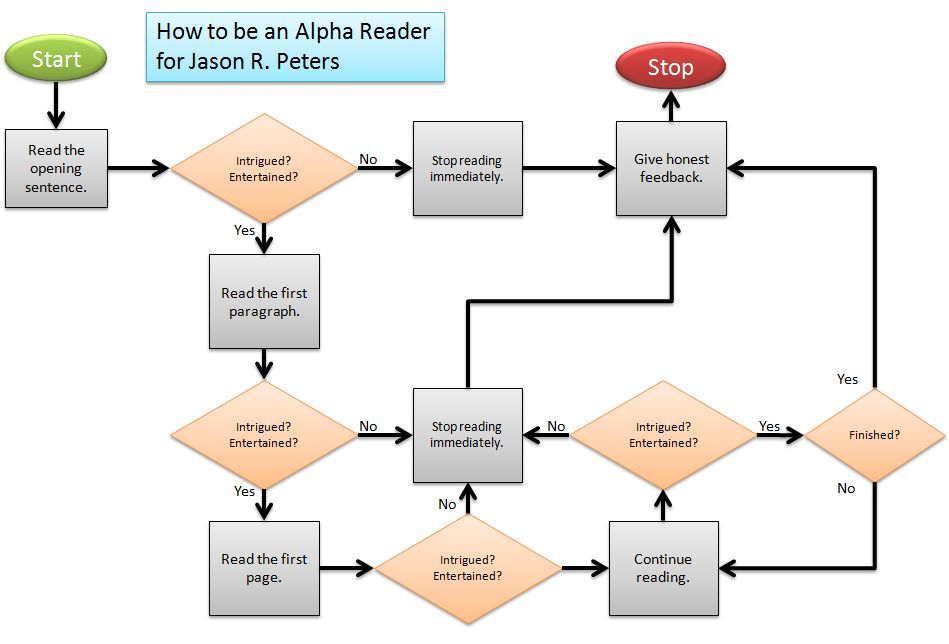Whenever something is being published, such as a book or an article, we want it to be in tiptop shape. You do that by sticking to the writing process and part of that process is revision. After going over your work the first time, it’s a great idea to get someone else to go over it. Typically, I call this person a beta reader, but recently, I’ve learned the difference between alpha and the beta readers.
Your alpha reader doesn’t need an English degree or writing background. They should, however, be willing to be honest with you. And preferably, they should be who you’d consider your ideal reader (aka target audience). It can be your boo, best friend, or mom too. You can have them read it before you finish (especially if you’re stuck), or as soon as you’ve finished. The primary job of the alpha reader is to tell you if it’s good enough to keep reading. Here’s a neat little flow chart to further explain:
After you’ve revised your work, then enlist your beta readers. They should be qualified enough to give you a detailed critique. While the alpha reader wasn’t concerned with grammar and punctuation and structure, your beta reader is. And because the alpha and beta readers aren’t paid, you don’t want to waste their time. The best way not to do that is to go according to schedule and give them specific instructions, which may include:
- A deadline (Do you need it back in two weeks/a month/etc.?)
- Specific questions regarding areas that you struggled with (i.e. pacing, a clear topic/theme, characterization, etc.)
- Suggestions for improvement
- Any requirements of the publisher/editor that you’re submitting your work to
Locating alpha and beta readers is another story, but really isn’t difficult. Check out Meetup.com to see if there are any writing groups/critique groups in your area. If there aren’t, consider starting one. Another great idea is joining writing communities/groups on Facebook and Google+ (maybe even LinkedIn) to find writers on the same level as you (not yet published, already published, etc.). Your local library may know of some, and some good ole’ inboxing ain’t never hurt nobody.
As a neat little recap, your pre-publishing process should look something like this:
- Outlining/planning
- Drafting
- Finish first draft
- Give to alpha reader
- Revise
- Give to alpha reader again or move on to beta reader
- Revise until satisfactory
- Give to editor
Any questions? Ask below. Have tips to add? Comment below. Seeking help throughout the entire writing process? Click here to learn how my book coaching service works.
